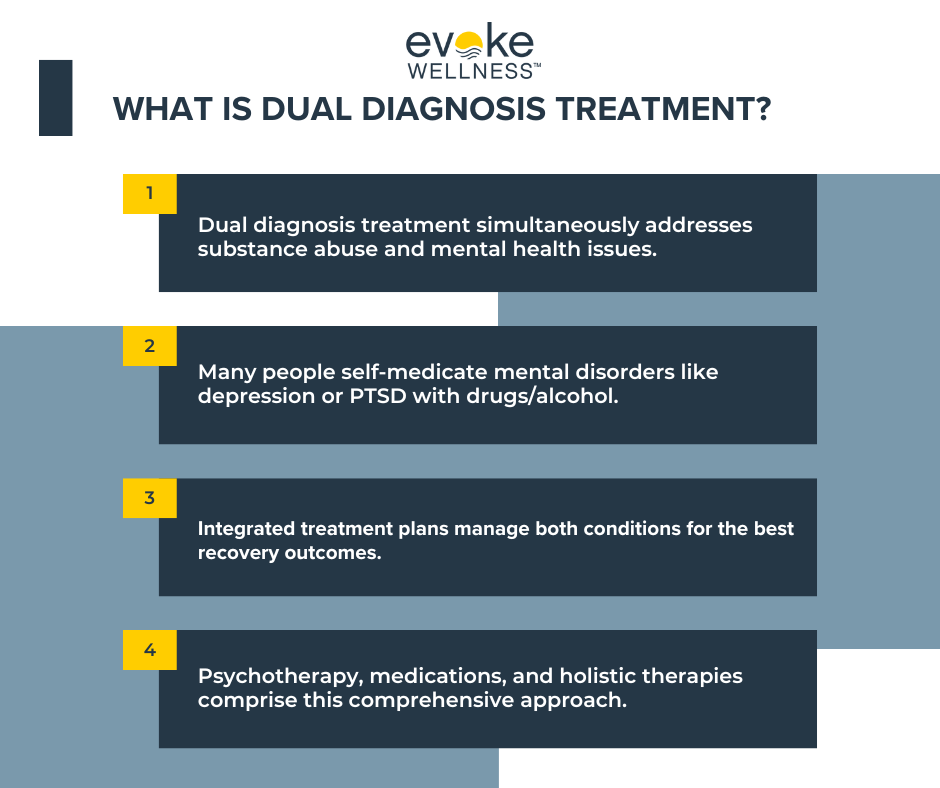Embarking on the journey of detoxification is a crucial first step towards recovery. As you or your loved one prepare for this transformative process, it’s essential to understand the various aspects of medical detox, particularly for alcohol dependency. Recent studies show that professionally supervised detox can increase the likelihood of successful long-term recovery by up to 68%. Whether you’re considering residential treatment or dual diagnosis care, proper preparation can significantly impact your experience. This guide will provide you with practical tips to help navigate the challenges of detox, ensuring you’re well-equipped for the road ahead. From understanding the medical aspects to creating a supportive environment, we’ll explore key strategies to optimize your detox journey and set a strong foundation for lasting recovery.
Together, let’s embrace the journey to recovery and the promise of a new beginning. Call us at (833) 503-0734 today or reach out online.
Understanding Detox
The Detox Process
Detoxification, or “detox,” is the crucial first step in overcoming substance abuse and addiction. It involves safely ridding the body of drugs and alcohol, allowing the brain to restore its chemical balance. The detox process can be uncomfortable due to withdrawal symptoms, so it requires medical supervision.
Medical Detox Programs
- Provide 24/7 monitoring and support from healthcare professionals
- Use medications to manage withdrawal symptoms and cravings
- Offer a safe, controlled environment free from substance access
Choosing an inpatient or residential detox program ensures a higher level of care and support during this difficult but necessary stage.
Dual Diagnosis Treatment
Many individuals struggling with addiction also have co-occurring mental health disorders like depression or anxiety. Detox is just the first phase – comprehensive dual diagnosis treatment addresses both conditions simultaneously through an integrated approach of therapy, counseling and medication management.
Recent studies show dual diagnosis patients have higher recovery rates when both issues are treated concurrently rather than separately. Preparing for detox means understanding it is the initial step towards reclaiming your overall well-being.
How to Prepare For Detox Mentally
Develop a Positive Mindset
Building a positive and determined mindset is crucial for a successful detox experience. Acknowledge that detox may involve challenges, but keep your focus on the ultimate goal of recovery. Visualize yourself overcoming obstacles and emerging stronger on the other side. Embrace a mindset of self-care and self-compassion throughout the process. According to a study, individuals who approach detox with a positive attitude are more likely to complete the program and achieve lasting sobriety.
Seek Support
Detox can be an emotionally and mentally demanding journey, but you don’t have to go through it alone. Having a strong support system can significantly aid the detox process. Lean on trusted friends, family members, or peers in recovery who can offer encouragement and understanding. Consider joining a support group or seeking counseling to help you develop effective coping strategies.
Practice Stress Management
During detox, you may experience heightened levels of stress, anxiety, and other challenging emotions. Proactively learning and practicing stress management techniques can help you navigate this period more effectively. Incorporating self-care practices like exercise, meditation, and pursuing hobbies to nurture your mental health during recovery.
Set Realistic Expectations
It’s essential to have realistic expectations about the detox process. As noted by Evoke Wellness, the duration and intensity of withdrawal symptoms can vary depending on factors like the substance, severity of addiction, and individual physiology. Understanding that detox may involve challenges, but having a clear vision of the end goal, can help you stay motivated and resilient.
How to Physically Prepare for Detox
Prioritize Rest and Hydration
Proper rest and hydration are essential for successful detox. Get plenty of sleep in the days leading up to detox to help your body cope with withdrawal symptoms. Drink plenty of water and electrolyte-rich fluids to prevent dehydration, a common side effect of detox.
Eat Nutrient-Dense Foods
Your body will be expending a lot of energy during detox. Fuel it with nutrient-dense, high-protein foods like lean meats, eggs, legumes, and whole grains. Avoid sugary, processed foods that can exacerbate withdrawal symptoms.
Create a Calming Environment
Detox can be stressful, so create a calm, comfortable living space free from triggers or temptations. Keep the area clean, quiet, and dimly lit to promote relaxation. Consider soothing activities like reading, listening to music, or light stretching.
Seek Professional Support
Attempting detox alone can be dangerous and ineffective. Seek medical supervision and counseling to safely manage withdrawal symptoms and address underlying issues. Comprehensive treatment programs provide a continuum of care for lasting recovery.
Arranging Your Support System
Lean on Loved Ones
Having a strong support network is crucial during detox and recovery. Lean on close friends and family who encourage your sobriety. Ask them to avoid enabling behaviors and hold you accountable. Their positive presence can provide comfort through challenges.
Join a Community
Many find strength in shared experiences at support groups like Alcoholics Anonymous or SMART Recovery. These free programs offer encouragement and advice from others walking the same path. Attending meetings reinforces commitment and reduces relapse risk.
Seek Professional Help
Qualified counselors, therapists, and addiction specialists provide essential guidance. They employ proven strategies to manage cravings, identify triggers, and rebuild a sober life. Their expertise complements other support outlets.
Surrounding yourself with a team invested in your success is vital. By combining loved ones, peers, and professionals, you create a powerful circle of support to overcome detox hurdles and sustain long-term recovery.
Understanding and Managing Withdrawal Symptoms
The Withdrawal Process
Detox, or detoxification, is the crucial first step in overcoming substance addiction. It involves allowing the body to rid itself of drugs or alcohol while managing the associated withdrawal symptoms under medical supervision. This process helps break the physical and psychological dependence on the substance.
Symptom Management
Common withdrawal symptoms during detox may include nausea, anxiety, irritability, muscle aches, and insomnia. These symptoms are normal reactions as the body rids itself of substances, but they can be extremely uncomfortable and even dangerous in some cases without proper medical care.
Attempting detox alone is strongly discouraged, as it increases the risk of life-threatening complications and decreases the chances of completing the full treatment process.
Professional Support
Seeking professional help from qualified addiction treatment centers like Evoke Wellness can provide a safe, medically-supervised environment to manage withdrawal symptoms and offer a comprehensive continuum of care for lasting recovery. This may involve medication-assisted treatment, counseling, and holistic therapies to address the physical, emotional, and psychological aspects of withdrawal and addiction.
Proper medical detox is crucial, as it prevents potentially life-threatening complications, increases the chances of completing the full treatment, and provides a smooth transition into comprehensive rehab. With the right support and care, individuals can overcome the challenges of withdrawal and embark on a journey toward long-term sobriety.
After Detox: Planning for Long-Term Recovery
A Lifelong Journey
Completing medical detox is a crucial first step, but professional treatment doesn’t end there. Recovering from addiction is a lifelong journey requiring ongoing commitment and support. To maintain sobriety, comprehensive aftercare planning is vital.
Continued Therapy and Support
Inpatient or outpatient rehab provides essential therapies and resources like:
- Cognitive-behavioral therapy to modify harmful patterns
- Family counseling to rebuild relationships
- Medication-assisted treatment to ease cravings
- Support groups fostering community and shared experiences
Individual therapy explores root causes while group sessions offer mutual encouragement.
Holistic Healing
Evoke Wellness incorporates holistic practices alongside medical treatment. Mindfulness, nutrition, and exercise promote overall well-being. Activities like yoga and meditation aid relaxation during recovery.
Relapse Prevention Strategies
Aftercare provides vital relapse prevention tools, including:
- Ongoing individual and group therapy
- Participation in 12-step programs and sober communities
- Medication management and compliance monitoring
- Building a strong sober support network
With professional guidance, individuals develop personalized strategies to handle triggers and maintain progress.
Coordinated, Specialized Care
For those with co-occurring conditions like diabetes, aftercare involves coordinated care between addiction and disease management teams. Specialized dual diagnosis treatment addresses both substance abuse and mental health disorders simultaneously.
Preparing for Detox: FAQ
What is medical detox?
- Medical detox involves 24/7 monitoring and care to safely manage withdrawal symptoms.
- It is the first stage of addiction treatment for severe substance use disorders.
- Medications may be used to ease cravings and physical discomfort during the process.
How long does detox last?
- Detox timelines vary based on the substance, dosage, and length of addiction.
- Alcohol and opioid detox typically last 5-7 days.
- Stimulant detox like cocaine may last 1-2 weeks.
- Inpatient programs provide a safe, structured environment during this crucial first step.
Do I need residential treatment after detox?
- Residential or inpatient treatment is highly recommended after completing detox.
- These programs provide intensive therapy, counseling, and support for sustained recovery.
- They allow you to focus solely on your health in a secure, substance-free setting.
- Long-term residential care is ideal for those with severe addictions or co-occurring disorders.
Begin Your Journey with Evoke Wellness at San Marcos
If you or a loved one is considering treatment, Evoke Wellness at San Marcos invites you to contact us. Our compassionate team is ready to answer your questions, discuss your needs, and help you take the first steps toward recovery. At Evoke Wellness, you will find more than just a treatment program – you’ll discover a community dedicated to your wellness and success. Together, let’s embrace the journey to recovery and the promise of a new beginning. Call us at (833) 503-0734 today or reach out online.



